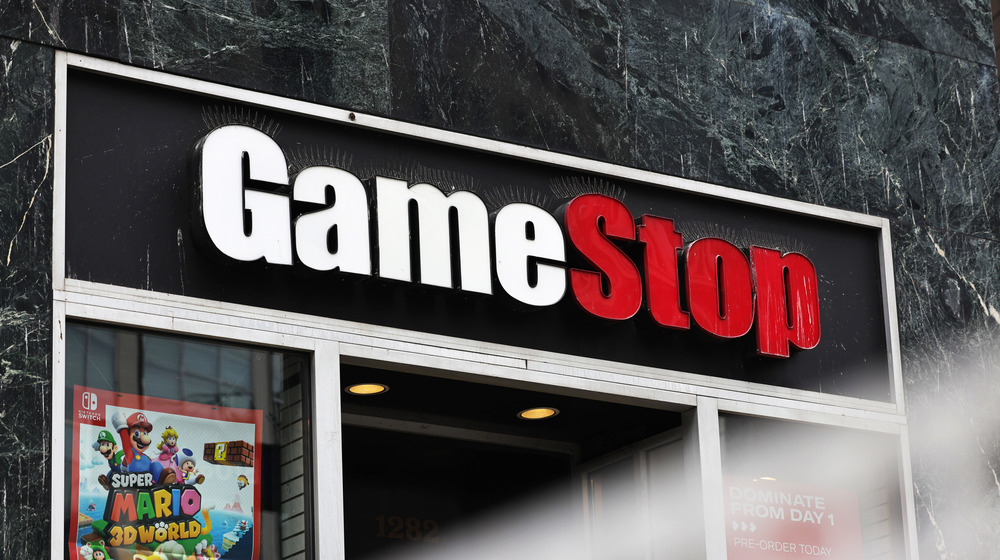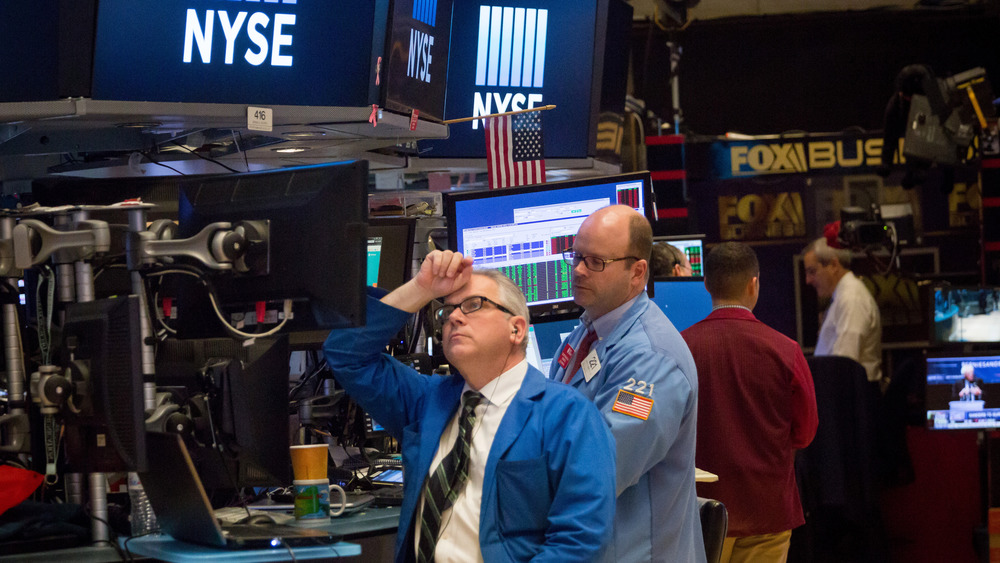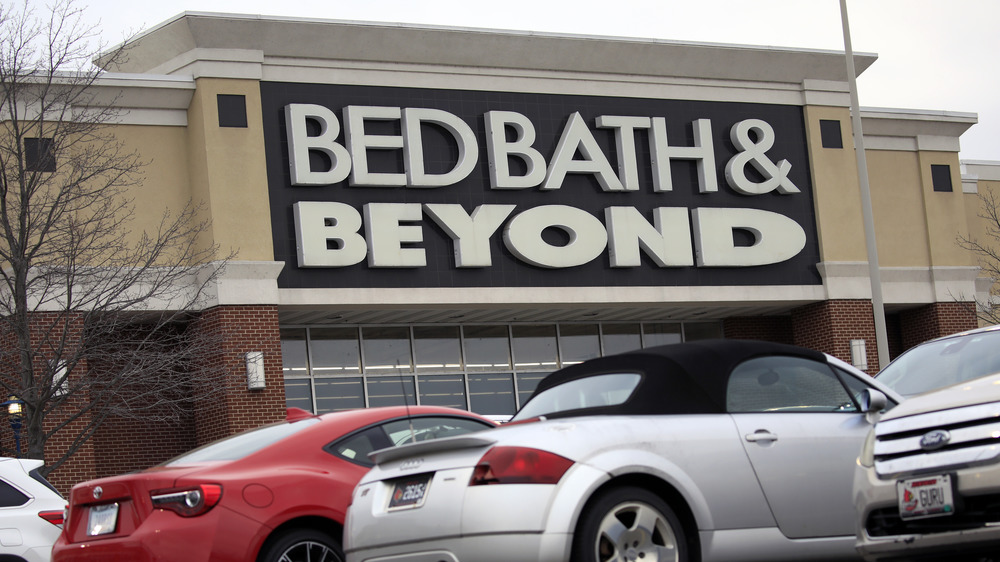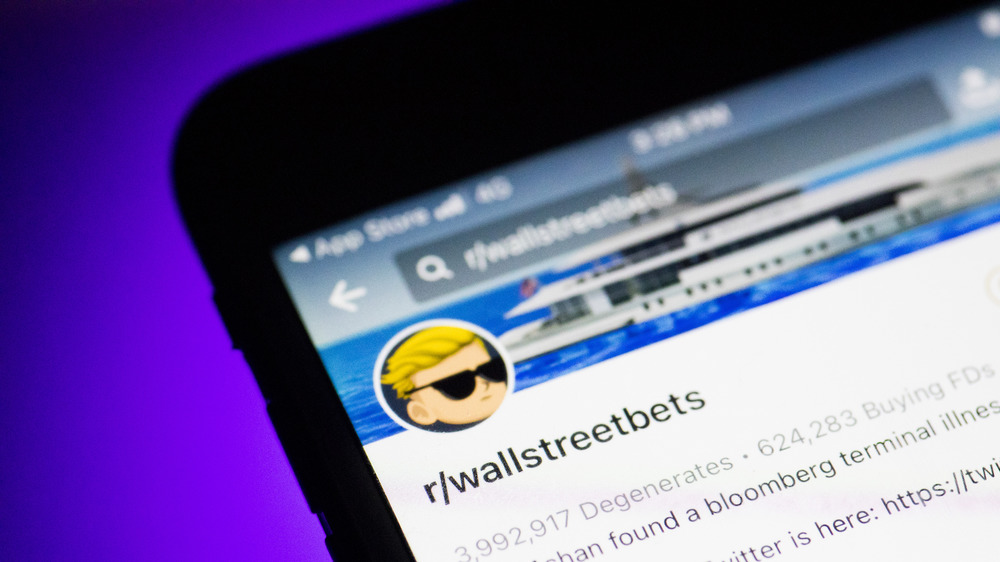How Reddit Made Wall Street Lose Billions
It began, as all things do online, with a series of posts on social media, except these were made in a subReddit chatroom called WallStreetBets, a virtual talk shop full of screenshots, memes, gifs, and tips on what stocks to buy, when to buy, and when to sell.
WallStreetBets attracts individual investors of all ages, who call themselves "retail bros" or short-term investors (via Urban Dictionary). While the subReddit has been around since 2012, activity spiked during the pandemic, most likely because people started trading stocks in the comfort of their own homes. As Esquire reports, WallStreetBets nearly doubled in size during the 12-month period from January 2019 to January 2020 — and the number of members has only skyrocketed since then. Markets Insider says the subReddit group now has 5.9 million users (vs. 774,000 in January 2020), particularly since the site has set the stage for an epic, billion-dollar "man on the street vs. Wall Street" saga.
So why GameStop?
Up until three weeks ago, GameStop shares were trading at around the $18 level, when it began creeping up for no apparent reason. At its highest, GameStop stock rose to $347.51 a share before climbing down to $193.60 — and while it may not be at its astronomical highs, that price was still a vast improvement over the $18 level it was trading at during the beginning of the year.
The retail bros were betting that the impending arrival of Chewy's co-founder meant that the company might soon be ready to make the move from real-world to digital gaming (via the Associated Press). But our intrepid subReddit investors were also looking to bet against Wall Street's institutional investors, who had wanted GameStop's share prices to fall so that they could buy up the stock on the cheap. These big investors had sold more GameStop shares than they owned, thinking that they could buy back the stocks and make some money on the side when share prices fell below the original $18.
That situation, also known as a short sale, can result in a "short squeeze" which is when a stock's price goes up and investors are forced to buy back shares — no matter what the cost.
Other stocks are giving institutional investors a headache
GameStop isn't the only shorted stock that's giving institutional investors a run for their money — Bed Bath & Beyond, BlackBerry (yes, its still alive), and movie theater chain AMC are up by a significant percentage, too. The biggest loser: a hedge fund named Melvin Capital, which eventually needed to be rescued in a package worth $2.75 billion (via the Associated Press). The roller-coaster trading came to a halt when the stock retail platform Robinhood had to stop trading 13 stocks — including GameStop (via CNN).
While most of corporate America has been horrified by the events which engulfed Wall Street this week, the trend has its supporters, like Social Capital CEO Chamath Palihapitiya. As he put it to CNBC, the phenomena that engulfed GameStop shares didn't happen in a vacuum, and, in fact, hedge funds do what WallStreetbets did all the time. "To a normal person that doesn't make any sense. But to a Wall Street mathematician, that's the game that's been played. And that game came undone," he said.
WallStreetBets has its fans
Social Capital's CEO also says he considers Wall Street's recent roller coaster a pushback from retail investors who were able to come together and do what hedge fund managers do, but in the open, in a forum. "A lot of people [on Wallstreetbets] are doing some incredible fundamental due diligence on companies, trying to think about long-term value, and in my opinion, many of them are doing as good, if, frankly, not a better job than a lot of hedge fund analysts that I work with," Palihapitiya tells CNBC.
And because they're doing such a good job, "That edge is gone. Now all of a sudden, retail can be on the same footing and they don't have to be the 'bag holder' to Wall Street," he says. "What it proves is this retail [investor] phenomenon is here to stay. There are [5.9] million people inside WallStreetBets. I think they are as important as any hedge or collection of hedge funds."



